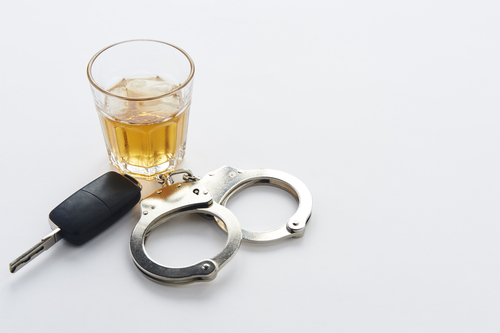In all 50 states, the .08 blood alcohol concentration is considered the legal limit. A BAC of .08 or above is considered driving while intoxicated. Most states have laws that require people who were convicted of drunk driving to undergo an evaluation to determine the extent of their alcohol consumption. If you get arrested for drunk driving, this will be evidence that you have a drinking problem, even if this is your first-time conviction. The law is clear in almost all states.
Remember no matter what happened, whether you caused an accident, or were arrested simply because your BAC was .08 or higher, it’s important to call a Portland DUI attorney as soon as possible.
Getting Evaluated After a DUI
Forty-five states and the District of Columbia don’t necessarily ask you to decide if you have a substance abuse problem. These states expect an evaluation for substance abuse after your first DUI arrest. If there is a problem, you might be required to undergo treatment.
Most people who are arrested for DUI should complete classes on the dangers of driving under the influence. If you are found to have a problem with alcohol or drugs, the number of these classes will be increased.
Alcohol Evaluation
Before returning your driving privileges after you were convicted for DUI, in most states you will be asked to get an evaluation to determine the extent of your drinking habits and attitudes. The evaluator will determine if you need additional education or treatment.
You can expect to be required to attend Alcoholic Anonymous (AA) or Narcotics Anonymous (NA) meetings depending on what type of substance abuse you have. Also, you might have to attend substance abuse education or counseling sessions, as well as random drug or alcohol testing.
Among other things, you might need to get an outpatient treatment program, an inpatient treatment program, and individual or group treatment sessions. The state will determine how long these programs will last.
Making Changes
After a DUI arrest, you will have to change your drinking and driving behavior. If this was a one-time mistake, you won’t have problems stopping drinking. However, some people will find it hard, especially those who have an addiction. These people usually have second or third-time DUI convictions.
And while a DUI isn’t always a sign of an addiction, it should be taken as a warning sign. If you keep drinking or taking drugs even though you are advised not to (especially when you should drive) is a sign of a substance abuse problem.
How to Recognize a Problem
If you were arrested for DUI, there is a chance you have a problem with alcohol-abusing. It doesn’t mean you have alcoholism. Alcohol abuse is defined as a pattern of drinking behavior that negatively affects your relationships, health or capacity to work. Alcoholism is defined as a chronic disease marked by a physical dependence on alcohol.
Alcohol Treatment Programs
After the alcohol evaluation, you will get your results. If it’s determined that you are an alcohol abuser or are alcohol dependent, you may be required to complete some form of treatment before you can get back your driving privileges. If you do have a drinking problem this problem will be addressed before you can legally return to driving.
The required treatment will depend on your evaluation and can range from attending several support group meetings, therapy sessions, detoxification, and residential rehabilitation and treatment facility.
Most states are sending a message to DUI offenders that attempt to drive while intoxicated that even though they don’t believe they have a drinking problem, they are a danger to public safety. Alcohol evaluation and treatment after a first-time DUI offense are mandatory in 45 states.
Forty-five states require alcohol evaluation and treatment after the first drunk driving offense. Two states demand it after the second DUI offense. One state orders treatment only after the third violation and two states have no education or treatment requirements.
Contact a Portland DUI Defense Attorney
Having an attorney in cases like this is essential. Of course, your attorney won’t come with you to the programs, but will advise you on your next legal steps and will make a decent defense to help you get the best outcome. A DUI lawyer is essential no matter if you’re convicted of a first or second-time DUI.
Our team at Trilogy Law Group is here to help you with your case; call our office and schedule your consultation.



